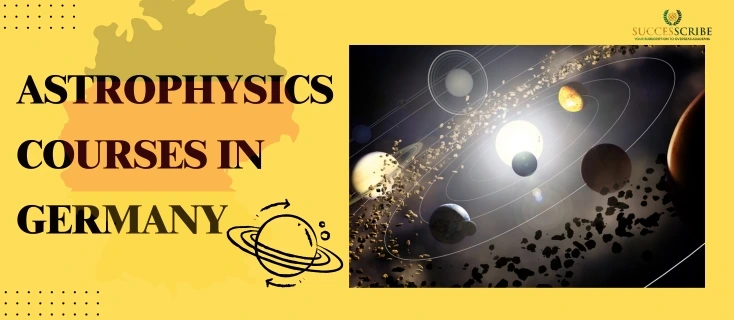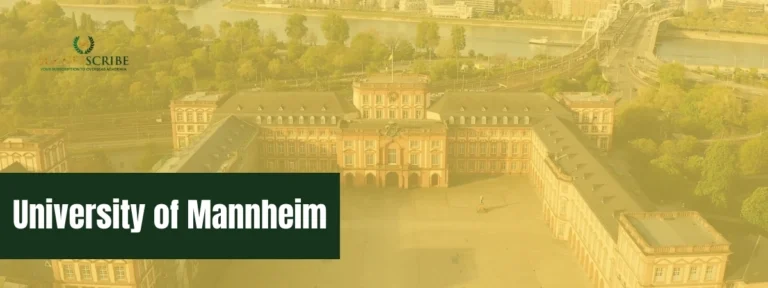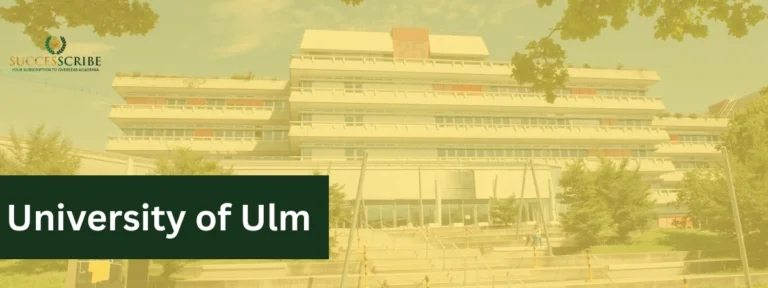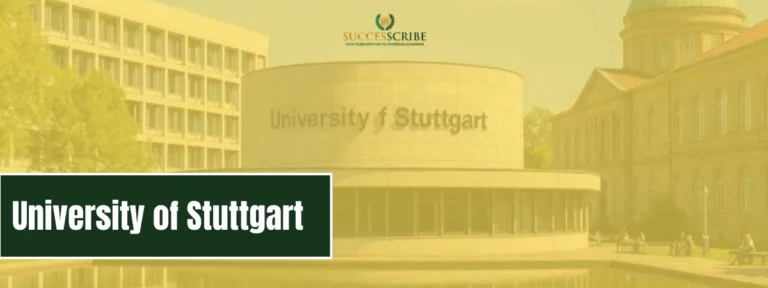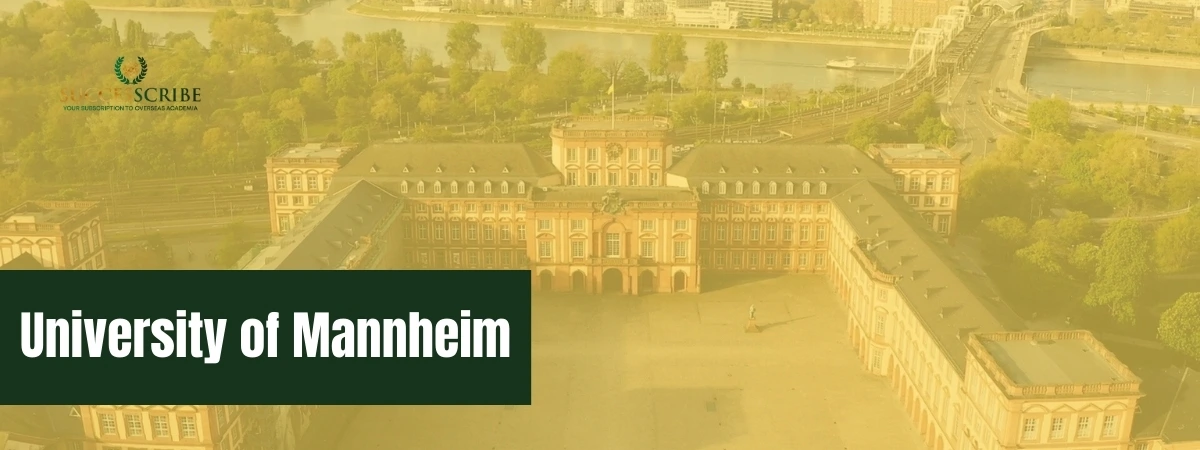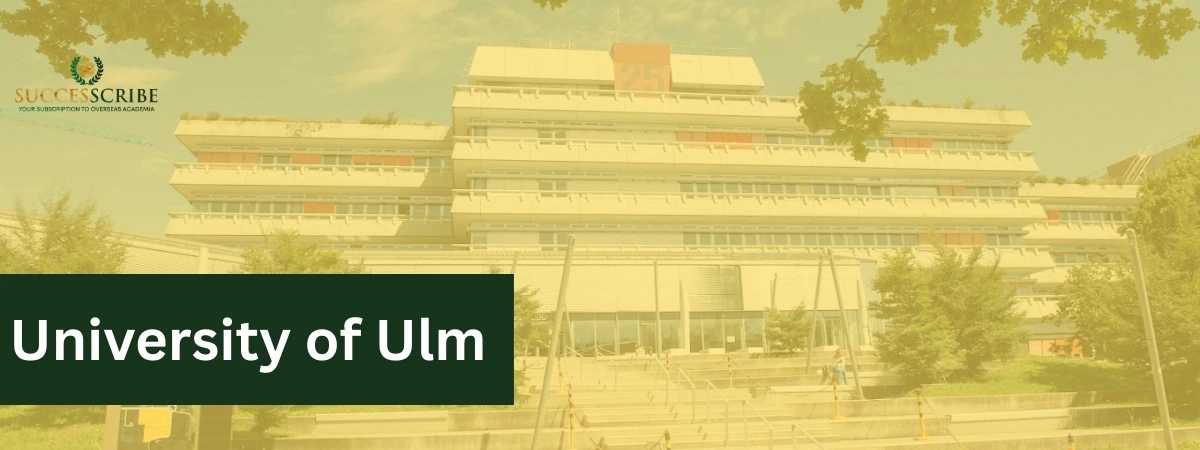Astrophysics, the study of the universe’s origins, structures, and evolution, is an intriguing field that merges physics and astronomy. Germany, a global scientific research leader, offers excellent opportunities for students aspiring to pursue astrophysics. Astrophysics courses in Germany provide world-class education and research opportunities, allowing students to delve deep into the mysteries of the cosmos. This topic guides you to everything you need to know about studying astrophysics in Germany, including top universities, costs, eligibility, and career prospects.
Top Universities Offering Astrophysics courses in Germany
Here are some of the top-ranked universities in Germany offering courses in astrophysics:
| University Name | Programs | QS World Ranking (2025) | Language of Instruction |
| Ludwig Maximilian University Munich (LMU) | Master of Astrophysics | #59 | English |
| University of Heidelberg | MSc in Physics with a focus on Astrophysics | #64 | English and German |
| University of Bonn | MSc in Astrophysics | #157 | English |
| TU Munich | MSc in Physics (Astrophysics specialization) | #37 | English and German |
| University of Goettingen | MSc in Astrophysics | #201-250 | English |
| University of Potsdam | MSc in Astrophysics and Cosmology | #601 – 650 | English and German |
| Max Planck Institute (in collaboration) | Research Oriented Astrophysics Program | English |
Related Post: Top low cost universities in Germany
Apply to Top German Universities
Make your application simple and stress-free with Successcribe
Get Expert Help NowReasons to Study Astrophysics in Germany
- Most of the astrophysics courses are offered in English, so that international students can also pursue their study without having to learn German, although it is quite helpful in daily life.
- Germany is home to state-of-the-art research facilities like the Max Planck Institute for Astronomy, the European Space Agency (ESA) office, and observatories such as the Karl Schwarzschild Observatory.
- German universities rank among the top globally for physics and astrophysics. Institutions like the University of Heidelberg and Ludwig Maximilian University of Munich (LMU) are renowned for their rigorous academic programs and research contributions.
- Public universities in Germany charge minimal or no tuition fees for both domestic and international students. Students need to pay only a semester fee, which usually ranges from €150 to €300.
Curriculum Structure for Astrophysics Course

Here is the Curriculum Structure of the Astrophysics Course in Germany
1. Bachelors in Astrophysics
For a Bachelor in Astrophysics in Germany, the program typically covers fundamental concepts in physics, mathematics, and astronomy. bachelor in astrophysics in Germany The duration of the course is 3 years which takes 6 semesters and the topics covered are;
- Mechanics and Thermodynamics
- Electrodynamics and Optics
- Fundamental of Astronomy
- Computational Astrophysics
2. Master of Astrophysics
Master’s programs specialize in topics and research. They are usually 2 years (4 semesters) long. You’ll do MSc astrophysics in Germany, The main modules include:
- Stellar Evolution and Structure
- Galactic Dynamics
- Cosmology and Dark Matter
- Astrophysical Observations and Techniques
3. Ph.D. in Astrophysics
Ph.D. programs focus on original research and last for about 3 to 5 years. Some topics students work on include:
- Exoplanet Detection
- Black Hole Physics
- High-Energy Astrophysics
What Do You Learn in an Astrophysics Program?
German astrophysics programs are built to make deep sense of the universe using physics and computational techniques. Here are the main themes that the courses will entail:
1. Theoretical Frameworks
- Quantum Mechanics
- Relativity and Gravitational Physics
- Statistical Mechanics and Thermodynamics
2. Observational Methods
- Telescope Operations and Instrumentation
- Spectroscopy and Photometry
- Data Analysis from Space and Ground-based Observatories
3. Advanced Topics
- Cosmology: Big Bang, dark energy, and cosmic microwave background
- Stellar Astrophysics: Study of stars, supernovae, and black holes
- Galactic Dynamics: Study of the Milky Way and other galaxies
4. Computational Skills
- Astrophysics Programming (Python, C++)
- Numerical Simulations
- Machine Learning in Astronomy
5. Research Methodologies
- Experimental Design and Execution
- Research Paper Writing
- Oral Presentations at Conferences
This all-inclusive curriculum provides students with both theoretical education and practical training that will propel them into careers in academia, research, or the space industry.
Admission Requirements to Study Astrophysics Courses in Germany
Here are the requirements for Bachelor’s, Master’s and PhD programs:
1. Undergraduate Program
- Academic Conditions: Passed 12th grade with good marks in physics and mathematics (with at least 75 %).
- Language Skills: 6.0 IELTS, or 80 TOEFL for English-speaking programs, as some Master’s programs require German as a second language at level B1.
2. Master’s Program
- Academic Conditions: Bachelor’s degree in Physics, Astronomy, or a similar field with a minimum GPA of 3.0/4.
- Language Proficiency: 6.0 IELTS, or 80 TOEFL for English-speaking programs, as some Master’s programs require German as a second language at level B1.
- GRE Scores: Required by some universities.
3. For Ph.D. Programs
- Master’s Degree: A Master’s in Astrophysics, Physics, or a related field.
- Research Proposal: A clear research statement aligned with the university’s expertise.
- Language Skills: Proficiency in English (TOEFL 95 or IELTS 7.
Cost of Studying Astrophysics in Germany
Here’s the cost of studying astrophysics courses in Germany:
1. Tuition Fees
Public universities in Germany are tuition-free for most programs. Students pay a semester fee, which ranges between €150 and €300. This covers all administrative costs and access to all facilities.
2. Living Cost
The average monthly cost of living for international students in Germany is around €850. This includes:
- Accommodation: €300-€500
- Food: €150-€250
- Health Insurance: €110
- Transport: €50-€100
3. Other Cost
- Books and Materials: €50 per semester
- Miscellaneous: €100-€200
Also Read: Cost of studying in Germany
Steps to Apply for Astrophysics Courses in Germany
Successcribe, a leading study abroad consultancy is here to help you. Here is the step-by-step guide to applying for Astrophysics Courses in Germany:
Step 1: Select the Relevant Program
Research universities and programs that match your desired academic and career objectives.
Step 2: Prepare your Application Documents
- Academic transcripts
- Language proficiency certificates
- Statement of purpose
- Letters of recommendation
Step 3: Apply at Uni-Assist
- International applicants usually apply through Uni-Assist, a central application portal, or directly via the University website.
Step 4: Application for Student Visa
- An applicant must apply for a German student visa, which necessitates proof of university admission, financial means (€11,208 in a blocked account), and health insurance.
Career Prospects in Astrophysics

Germany offers excellent career opportunities for astrophysics graduates. The average starting salary for astrophysics in Germany ranges from €45,000 to €70,000 per year. Here are some career paths:
| Career Path | Roles and Responsibilities | Average Salary in Euros (per year) |
| Research Scientist | Conducts research in institutions like Max Planck Institute and universities. | 50,000 – 80,000 |
| Astronomer | Observe celestial events, analyze data, and develop theories. | 45,000 – 70,000 |
| Space Scientist | Designs and tests space missions, satellites, and exploration tools. | 55,000 – 90,000 |
| Astrophysicist | Explores the origins and evolution of the universe using data and theoretical models. | 50,000 – 85,000 |
| Data Scientist | Applies astrophysics data analysis techniques in industries like AI and big data. | 60,000 – 100,000 |
| Academic/Professor | Teaches astrophysics at universities and mentors research students. | 40,000 – 70,000 |
| Observatory Technician | Maintains telescopes and related instruments at observatories | 35,000 – 70,000 |
| Aerospace Engineer | Develops technologies for spacecraft and aviation industries. | 55,000 – 95,000 |
| Computational Scientist | Uses simulations to model astronomical phenomena. | 50,000 – 80,000 |
| Science Communicator | Engages the public in understanding astronomy through writing, outreach, or media. | 30,000 – 60,000 |
Internships and Practical Training Opportunities
Germany’s focus on practical education extends to astrophysics programs, offering students various opportunities to apply their learning in real-world contexts. Some highlights include:
1. Internships at Research Institutions
- Students often intern at renowned institutes like the Max Planck Institute for Astrophysics or the European Space Operations Centre (ESOC).
- Tasks may involve analyzing astronomical data, designing simulations, or contributing to telescope operation projects.
- Duration: 3–6 months.
- Scholarships: Stipends start at about €800 per month to a high of €1,200/month in many programs.
2. Cooperation with Space Agencies
- DLR German Aerospace Centre offers a scholarship program mainly on student satellite technology, space exploration and research, and other astrophysical pursuits.
- Gain hands-on experience with the latest Space Technologies.
Opportunities for joint work
In Germany, large projects in Astrophysics provide much international joint work, the most significant initiatives including:
- Participation in Global Projects
- ESA Missions: Projects that students can contribute to include the Gaia mission by studying stellar properties or the James Webb Space Telescope through European partners.
- CERN Collaborations: Many German astrophysical programs link up with their particle physics experiments at CERN, for example, to pursue dark matter.
2. Accessibility to Telescopes
- In Germany, international observatories are partners, providing German students with access to the Atacama Large Millimeter/submillimeter Array (ALMA) in Chile as well as the Very Large Telescope (VLT).
3. Funding for Research
Students and PhD students receive funding from initiatives such as Horizon Europe or Max Planck Society Fellowships, which allows them to contribute to groundbreaking discoveries.
Student Networks and Communities
Studying astrophysics in Germany is not only about academics but also about becoming part of a lively global community. Here are ways students build networks:
1. University Clubs and Societies
Most universities have astronomy or physics clubs, for example, Astronomy Club at LMU Munich, organizing stargazing nights, workshops, and talks.
These provide great networking and knowledge exchange.
2. Conferences and Workshops
Students should be sent to international conferences, for example, the European Astronomical Society Meeting, or the German Physical Society Workshops.
Advantages: They are exposed to the state-of-the-art research going on in the industry, meet people working there, and even present findings.
3. Alumni Networks
Universities such as the University of Heidelberg have strong alumni networks in astrophysics, allowing students to connect with professionals in academia and industry.
Trends in Astrophysics

Astrophysics is a constantly evolving field, and students in Germany are uniquely positioned to explore the latest advancements. Current trends include:
1. Exoplanet Research
Discovering Earth-like planets and studying their atmospheres using advanced telescopes like TESS and the JWST.
2. Gravitational Wave Astronomy
Projects like LIGO and Virgo are helping us understand cosmic collisions and black hole formation.
3. Computational Astrophysics
Using AI and machine learning to analyze data, such as finding cosmic structures or simulating galaxy formation.
4. Multi-Messenger Astronomy
Combining electromagnetic waves, neutrinos, and gravitational waves to understand astronomical events in a holistic way.
How Germany Prepares Students for Global Careers
German astrophysics programs teach interdisciplinary skills, making graduates versatile. Some of the key skills include:
1. Advanced Computing Skills
Programming languages (Python, MATLAB, or Fortran) are an important part of astrophysics research.
The students learn to manipulate large data sets from observatories and space missions.
2. Project Management
Working in large collaborative projects develops a student’s leadership and team management skills.
3. Scientific Communication
Students are trained to write interesting research papers and present results at international conferences.
Work Opportunities after Study
Germany provides international graduates a straightforward route to entering the economy directly after graduation:
1. Job Search Visa
Astrophysics graduates can secure up to an 18 month job search visa, through which one can seek suitable occupations in Germany.
2. Potential Employers
- Space Industry: OHB System AG is another organization that is now offering jobs in satellite design and satellite mission planning.
- Academia: Other scope would be as research associates at colleges/universities and institutions that provide postdoctoral fellows.
- Data Analytics: Private firms are interested in the analytical ability that astrophysicists have as they seek finance and technology roles.
Tips for Applicants
1. Learn Elementary German
- Most programs are available in English, but knowledge of German enhances everyday life and other career opportunities.
2. Talk to Professors Early On
- Contacting a faculty member or professor may strengthen your application for highly competitive Master’s or Ph.D. programs.
3. Scholarship and Grants
- For instance, look for lesser-known scholarships, such as the Konrad-Adenauer-Stiftung Scholarship or university-specific grants to ease financial pressures.
Conclusion
Studying Astrophysics courses in Germany is a great choice for aspiring scientists, offering world-class education at affordable costs and ample research opportunities. Germany’s top-ranked universities, generous scholarships, and promising career prospects make it the perfect hub for students passionate about exploring the mysteries of the universe. Whether you’re looking to pursue a Bachelor’s, Master’s, or Ph.D., this guide provides you with all the information you need to set off on a stellar academic journey.
Related Posts
APS Certificate for Germany
Digital Marketing Degree in Germany
Highest paying companies in Germany
Blocked Account in Germany

